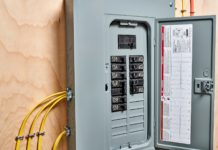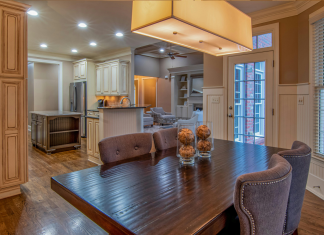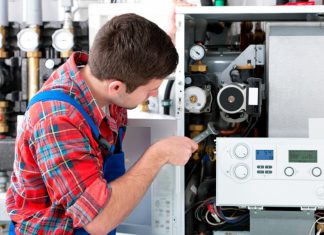If you’ve been hearing strange noises coming from your furnace, it’s time to find out what’s going on. A noisy furnace could mean a lot of different things, including something as simple as a dirty filter, to a problem with the blower motor, or a serious issue like a gas leak. That’s why it’s important to diagnose the problem as soon as possible.
Here are some of the most common causes of a noisy furnace and what you can do to fix it, along with some preventative measures that you can take to help avoid potential problems in the future.
Common Causes of Furnace Noises
- Rattling or banging noises – This could be caused by loose screws, panels, or ducts. You might also need a new blower belt on your furnace, or the motor itself could be wearing out. This requires professional furnace repair, do not attempt to fix this problem yourself.
- Screeching – If you hear this sound, it usually means there is an electrical problem with your furnace. Your blower motor may have a bad bearing that needs to be replaced. Another possibility would be a bad start capacitor.
- Whining – A high-pitched whine usually indicates that the furnace is overworking and needs more airflow. This could be caused by a dirty filter, blocked ducts, or that the furnace is undersized for your home’s size.
- Hissing – If you hear this sound, it means there is gas leaking from your furnace. This is a very serious issue and must be handled immediately. Turn off the gas supply to your home and call someone who can repair it right away.
- Squealing – A squeal coming from your furnace could be caused by loose parts, or that you need new belts on your blower motor. It might also mean that oil needs to be added to your furnace motor.
- Grinding noise – This can be caused by a worn-down motor, belt, or bearings can cause a grinding noise. This is usually an indication that your furnace needs to be replaced.
- Humming noise – Compressor problems or low refrigerant levels could cause this.
- Rumbling noise – Rumbling usually means the burner is dirty and needs to be cleaned. It can also indicate a problem with the blower wheel.
- Whistling noise – Air leaks in the ductwork could cause this. It could also be caused by a problem with the thermostat, blower motor, or air handler.
- Popping noise – The thermal expansion of metal parts could cause this as they heat up and cool down. It could also be a sign of an electrical problem.
How To Fix Common Furnace Noises
If you’re hearing strange noises coming from your furnace, it’s important to identify the source of the problem as soon as possible. With a general understanding of the common furnace noises as outlined above, go ahead and find the best furnace repair company to help you identify the source of your problem. Once they have a better idea of where these sounds are coming from, servicing the furnace should be easier.
Expect the expert to take several steps, including:
- Cleaning the furnace blower and motor
- Inspecting the belt and pulleys
- Checking the bearings on the fan shaft
- Tightening any loose screws or bolts on the furnace cabinet
- Replacing the air filter
- Checking the gas pressure
- Testing the ignition system
- Cleaning or replacing the pilot light
- Checking for proper ignition, burner flame, and flame sense
- Checking the drainage system for blockage or leakage
- Replacing the thermocouple, if damaged
These steps are all standard procedures for furnace repair experts. Be sure to ask your technician any questions you have about the work that needs to be done and what it could mean for the lifespan of your furnace. Most of these tasks are usually part of annual furnace maintenance, but they can be performed at any time of the year to ensure your furnace is running normally.
Don’t Ignore Furnace Problems
One of the biggest mistakes you can make as a homeowner is ignoring furnace problems. If your furnace starts making strange noises, it’s definitely time to call in the professionals for a tune-up. You rely on your furnace to keep your home warm all winter long – so don’t take any chances with a faulty furnace, or you could be left in the cold.















